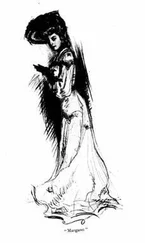James Cabell - The Certain Hour. Dizain des Poëtes
Здесь есть возможность читать онлайн «James Cabell - The Certain Hour. Dizain des Poëtes» весь текст электронной книги совершенно бесплатно (целиком полную версию без сокращений). В некоторых случаях можно слушать аудио, скачать через торрент в формате fb2 и присутствует краткое содержание. Жанр: Современная проза, на английском языке. Описание произведения, (предисловие) а так же отзывы посетителей доступны на портале библиотеки ЛибКат.
- Название:The Certain Hour. Dizain des Poëtes
- Автор:
- Жанр:
- Год:неизвестен
- ISBN:нет данных
- Рейтинг книги:4 / 5. Голосов: 1
-
Избранное:Добавить в избранное
- Отзывы:
-
Ваша оценка:
- 80
- 1
- 2
- 3
- 4
- 5
The Certain Hour. Dizain des Poëtes: краткое содержание, описание и аннотация
Предлагаем к чтению аннотацию, описание, краткое содержание или предисловие (зависит от того, что написал сам автор книги «The Certain Hour. Dizain des Poëtes»). Если вы не нашли необходимую информацию о книге — напишите в комментариях, мы постараемся отыскать её.
The Certain Hour. Dizain des Poëtes — читать онлайн бесплатно полную книгу (весь текст) целиком
Ниже представлен текст книги, разбитый по страницам. Система сохранения места последней прочитанной страницы, позволяет с удобством читать онлайн бесплатно книгу «The Certain Hour. Dizain des Poëtes», без необходимости каждый раз заново искать на чём Вы остановились. Поставьте закладку, и сможете в любой момент перейти на страницу, на которой закончили чтение.
Интервал:
Закладка:
This principle of selection, when you come to appraise it sanely, is the sole intelligent method of dealing with reading-matter. It seems here expedient again to state the peculiar problem that we average-novel-readers have of necessity set the modern novelist-namely, that his books must in the main appeal to people who read for pastime, to people who read books only under protest and only when they have no other employment for that particular half-hour.
Now, reading for pastime is immensely simplified when the book's theme is some familiar matter of the reader's workaday life, because at outset the reader is spared considerable mental effort. The motorist above referred to, and indeed any average-novel-reader, can without exertion conceive of the Williamsons' people in their automobiles. Contrariwise, were these fictitious characters embarked in palankeens or droshkies or jinrikishas, more or less intellectual exercise would be necessitated on the reader's part to form a notion of the conveyance. And we average-novel-readers do not open a book with the intention of making a mental effort. The author has no right to expect of us an act so unhabitual, we very poignantly feel. Our prejudices he is freely chartered to stir up-if, lucky rogue, he can!-but he ought with deliberation to recognize that it is precisely in order to avoid mental effort that we purchase, or borrow, his book, and afterward discuss it.
Hence arises our heartfelt gratitude toward such novels as deal with "vital" themes, with the questions we average-novel-readers confront or make talk about in those happier hours of our existence wherein we are not reduced to reading. Thus, a tale, for example, dealing either with "feminism" or "white slavery" as the handiest makeshift of spinsterdom-or with the divorce habit and plutocratic iniquity in general, or with the probable benefits of converting clergymen to Christianity, or with how much more than she knows a desirable mother will tell her children-finds the book's tentative explorer, just now, amply equipped with prejudices, whether acquired by second thought or second hand, concerning the book's topic. As endurability goes, reading the book rises forthwith almost to the level of an afternoon-call where there is gossip about the neighbors and Germany 's future. We average-novel-readers may not, in either case, agree with the opinions advanced; but at least our prejudices are aroused, and we are interested.
And these "vital" themes awake our prejudices at the cost of a minimum-if not always, as when Miss Corelli guides us, with a positively negligible- tasking of our mental faculties. For such exemption we average-novel-readers cannot but be properly grateful. Nay, more than this: provided the novelist contrive to rouse our prejudices, it matters with us not at all whether afterward they be soothed or harrowed. To implicate our prejudices somehow, to raise in us a partizanship in the tale's progress, is our sole request. Whether this consummation be brought about through an arraignment of some social condition which we personally either advocate or reprehend-the attitude weighs little-or whether this interest be purchased with placidly driveling preachments of generally "uplifting" tendencies-vaguely titillating that vague intention which exists in us all of becoming immaculate as soon as it is perfectly convenient-the personal prejudices of us average-novel-readers are not lightly lulled again to sleep.
In fact, the jealousy of any human prejudice against hinted encroachment may safely be depended upon to spur us through an astonishing number of pages-for all that it has of late been complained among us, with some show of extenuation, that our original intent in beginning certain of the recent "vital" novels was to kill time, rather than eternity. And so, we average-novel-readers plod on jealously to the end, whether we advance (to cite examples already somewhat of yesterday) under the leadership of Mr. Upton Sinclair aspersing the integrity of modern sausages and millionaires, or of Mr. Hall Caine saying about Roman Catholics what ordinary people would hesitate to impute to their relatives by marriage-or whether we be more suavely allured onward by Mrs. Florence Barclay, or Mr. Sydnor Harrison, with ingenuous indorsements of the New Testament and the inherent womanliness of women.
The "vital" theme, then, let it be repeated, has two inestimable advantages which should commend it to all novelists: first, it spares us average-novel-readers any preliminary orientation, and thereby mitigates the mental exertion of reading; and secondly, it appeals to our prejudices, which we naturally prefer to exercise, and are accustomed to exercise, rather than our mental or idealistic faculties. The novelist who conscientiously bears these two facts in mind is reasonably sure of his reward, not merely in pecuniary form, but in those higher fields wherein he harvests his chosen public's honest gratitude and affection.
For we average-novel-readers are quite frequently reduced by circumstances to self-entrustment to the resources of the novelist, as to those of the dentist. Our latter-day conditions, as we cannot but recognize, necessitate the employment of both artists upon occasion. And with both, we average-novel-readers, we average people, are most grateful when they make the process of resorting to them as easy and unirritating as may be possible.
V
So much for the plea of us average-novel-readers; and our plea, we think, is rational. We are "in the market" for a specified article; and human ingenuity, co-operating with human nature, will inevitably insure the manufacture of that article as long as any general demand for it endures.
Meanwhile, it is small cause for grief that the purchaser of American novels prefers Central Park to any "wood near Athens," and is more at home in the Tenderloin than in Camelot. People whose tastes happen to be literary are entirely too prone to too much long-faced prattle about literature, which, when all is said, is never a controlling factor in anybody's life. The automobile and the telephone, the accomplishments of Mr. Edison and Mr. Burbank, and it would be permissible to add of Mr. Rockefeller, influence nowadays, in one fashion or another, every moment of every living American's existence; whereas had America produced, instead, a second Milton or a Dante, it would at most have caused a few of us to spend a few spare evenings rather differently.
Besides, we know-even we average-novel-readers-that America is in fact producing her enduring literature day by day, although, as rarely fails to be the case, those who are contemporaneous with the makers of this literature cannot with any certainty point them out. To voice a hoary truism, time alone is the test of "vitality." In our present flood of books, as in any other flood, it is the froth and scum which shows most prominently. And the possession of "vitality," here as elsewhere, postulates that its possessor must ultimately perish.
Nay, by the time these printed pages are first read as printed pages, allusion to those modern authors whom these pages cite-the pre-eminent literary personages of that hour wherein these pages were written-will inevitably have come to savor somewhat of antiquity: so that sundry references herein to the "vital" books now most in vogue will rouse much that vague shrugging recollection as wakens, say, at a mention of Dorothy Vernon or Three Weeks or Beverly of Graustark . And while at first glance it might seem expedient-in revising the last proof-sheets of these pages-somewhat to "freshen them up" by substituting, for the books herein referred to, the "vital" and more widely talked-of novels of the summer of 1916, the task would be but wasted labor; since even these fascinating chronicles, one comprehends forlornly, must needs be equally obsolete by the time these proof-sheets have been made into a volume. With malice aforethought, therefore, the books and authors named herein stay those which all of three years back our reviewers and advertising pages, with perfect gravity, acclaimed as of enduring importance. For the quaintness of that opinion, nowadays, may profitably round the moral that there is really nothing whereto one may fittingly compare a successful contribution to "vital" reading-matter, as touches evanescence.
Читать дальшеИнтервал:
Закладка:
Похожие книги на «The Certain Hour. Dizain des Poëtes»
Представляем Вашему вниманию похожие книги на «The Certain Hour. Dizain des Poëtes» списком для выбора. Мы отобрали схожую по названию и смыслу литературу в надежде предоставить читателям больше вариантов отыскать новые, интересные, ещё непрочитанные произведения.
Обсуждение, отзывы о книге «The Certain Hour. Dizain des Poëtes» и просто собственные мнения читателей. Оставьте ваши комментарии, напишите, что Вы думаете о произведении, его смысле или главных героях. Укажите что конкретно понравилось, а что нет, и почему Вы так считаете.



